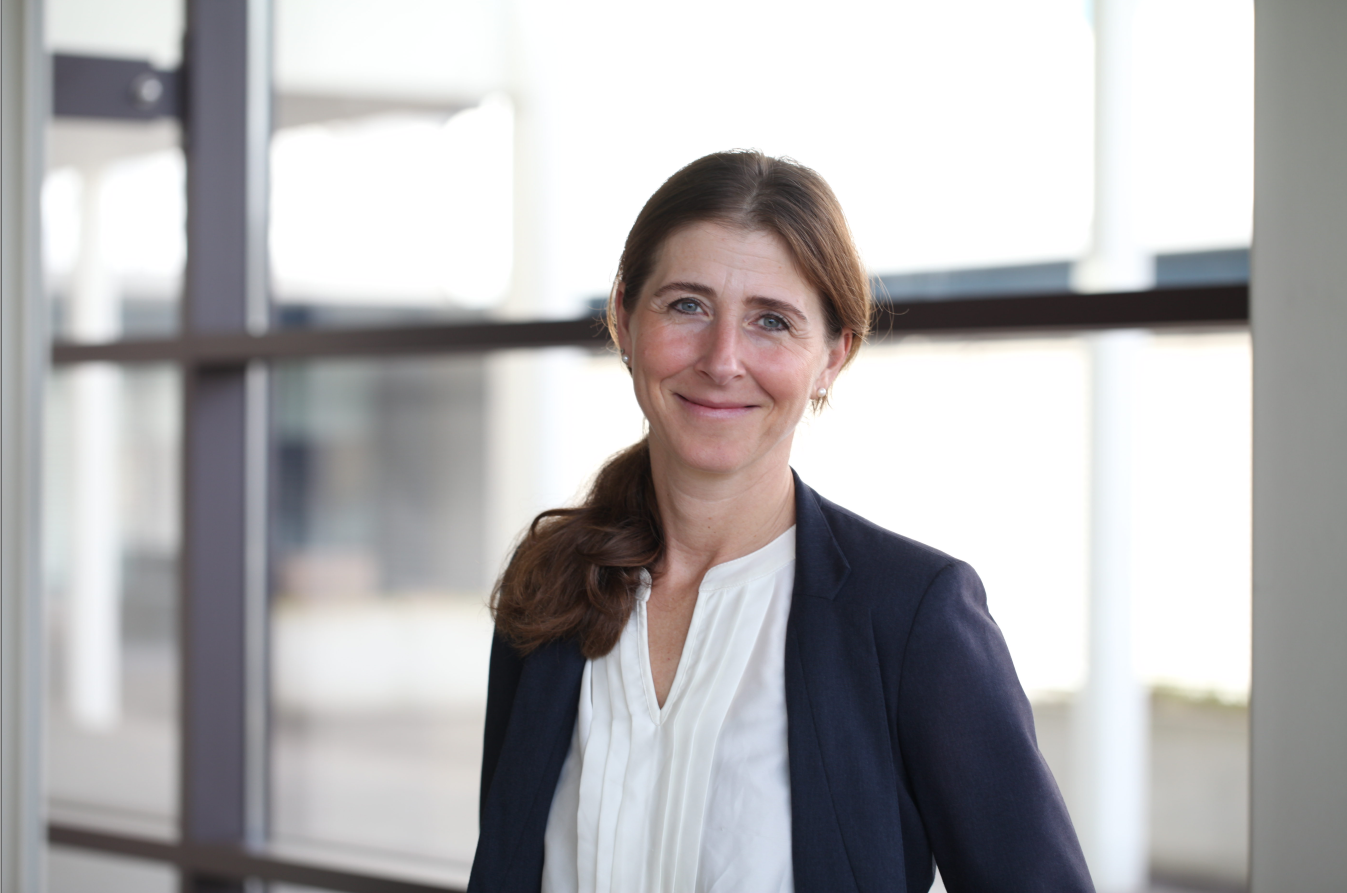Annette Ganschow heads the HR group at Fraunhofer IAF since the beginning of 2023. In this interview, she talks about how she perceives the employees during the change processes, which recruiting measures work in times of skills shortages and what makes an attractive employer in research.
“Change always involves a bit of friction, but also the chance to reshape things“
Interview with Annette Ganschow, head of the HR group at Fraunhofer IAF
Currently, many change processes are taking place both at Fraunhofer IAF and in the entire Fraunhofer-Gesellschaft. How are you experiencing this time?
Generally speaking, I experience a collegial and respectful interaction here and that is a good basis for cooperation. As part of the transformation, there is an examination of the structure and strategy and this always means an opportunity for further development and improvement. It is about responsibilities, decision-making powers, defining goals and, above all, identifying with the institute. Changing strategic processes offers the opportunity to become faster and more innovative if we manage to combine vision, strategy and values.
How do you perceive the employees in this phase?
Here in Research and Development, I have the impression that employees are generally open to new and unfamiliar things. They are curious, they question, try things out and are ready to face new challenges. But of course, every change comes with doubts and skepticism, because not everything is predictable and many new influences, different interests and perspectives come together. Change always involves a bit of friction, but also the chance to reshape things. Communication is crucial in such phases — employees want to be involved and be able to contribute.

Despite the skills shortage, we managed to fill a large number of vacancies in 2023. How did we achieve this?
First and foremost thanks to very hard-working colleagues! Everyone involved has always kept the ball rolling to fill the vacancies. We have also optimized our job advertisements, questioned current job portals and added new portals and media in order to increase our reach and become more visible internationally. We were in close contact with the institute’s management and executives, prioritized positions during the HR planning sessions, focused on key positions and searched for suitable candidates with particular vigor. The departments have increasingly used conferences and trade fairs to approach suitable candidates. And of course, we held a lot of job interviews. The combination of our measures and the improved labor market in the second half of the year ultimately led to us hiring twice as many people as in previous years.
The labor market as well as the demands on employers are changing. What conditions are necessary to ensure that Fraunhofer IAF continues to be a great place to work and conduct research?
For researchers, the charm of Fraunhofer IAF is the research infrastructure and the combination of excellent research and application-oriented development. But of course, we have to remain flexible — or agile, as you say today. You need high-quality equipment and infrastructure, but you also need an agile working environment. Topics such as part-time work, mobile working and sabbaticals have become an integral part of the New Work movement. Today’s young professionals attach great importance to meaningful work, but at the same time, they want to be self-determined and take on responsibility. We need to work closely with managers in particular, because this will require a completely different kind of leadership in the future. We must not only attract employees, but also develop them and point out prospects so that working here at the institute remains attractive in the long term. The most important thing, however, is to treat each other with respect and appreciation.
How do we manage to attract more female scientist?
Through colleagues who teach at universities, we are getting a little closer to the universities and have actually been able to recruit many female doctoral students recently. In the future, we will even train apprentices ourselves and thus have the opportunity to develop young female talent. We also have weekly meetings with the Equal Opportunities Officers to review unsolicited applications or good profiles from women and consider specifically which positions they would be suitable for. There is a great deal of support from the Institute Management when female employees want to take on management responsibility and, of course, we use the TALENTA program from Fraunhofer headquarters to specifically promote women.
How do we ensure that all employees have equal career opportunities regardless of their gender, ethnicity, age or other characteristics?
I consider Fraunhofer IAF to be quite open-minded and I notice that diversity is welcomed here. This is also reflected in our application processes. In terms of financial equality, the TVöD is actually quite good. It provides a standardized framework regarding qualifications and experience. This prevents injustices like when a man negotiates better than a woman. In the HR group, we offer international colleagues language courses and provide support during the recruitment process when it comes to residence permits, the EU Blue Card or letters from authorities. This is incredibly time-consuming, especially when hiring people from non-EU countries, and we try to help in the best way possible.
What were your plans when you took over the management of the HR group over a year ago?
My background is in human resources development and that is definitely one of my strengths. Together with the team, I not only want to strengthen the recruitment of qualified employees, but also promote and expand employee retention and create the necessary structures for personnel development. My vision for the HR group is that we take on a supportive but also advisory role and are perceived as a sparring partner for employees and managers. They know our expertise, contact us and we support them in achieving their goals.
 Fraunhofer Institute for Applied Solid State Physics IAF
Fraunhofer Institute for Applied Solid State Physics IAF